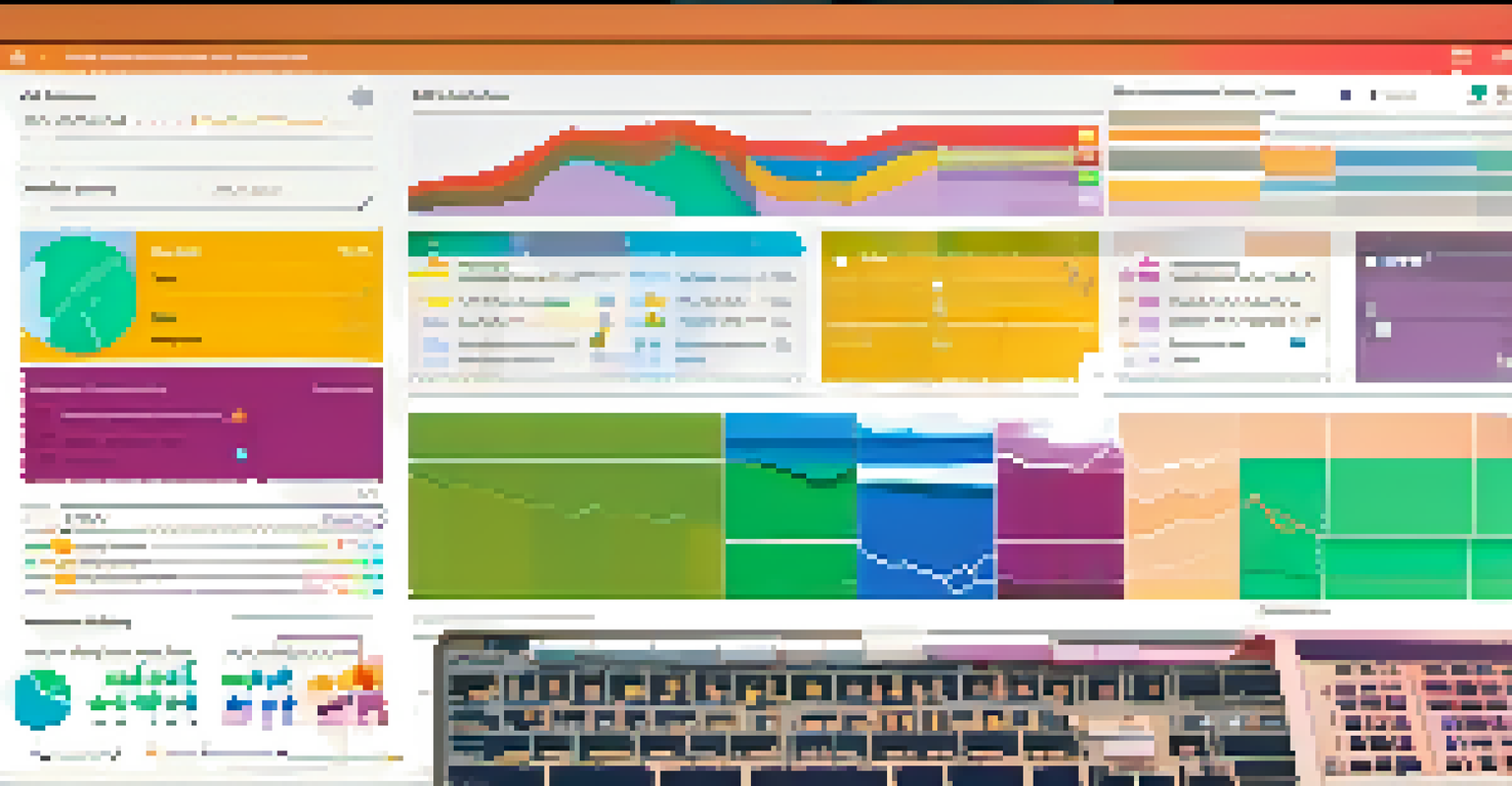The Impact of Civic Tech on Austin's Community Development

What is Civic Tech and Its Importance?
Civic tech refers to the use of technology to enhance public engagement and improve government services. It empowers citizens to participate in decision-making processes and fosters transparency and accountability. In a city like Austin, where community input is crucial, civic tech bridges the gap between the government and residents, allowing for more effective collaboration.
The best way to predict the future is to create it.
The importance of civic tech lies in its ability to make government more accessible. Traditionally, civic engagement could feel daunting, but with tools like apps and online platforms, residents can easily voice their concerns and ideas. This shift not only democratizes the process but also encourages a more informed and active citizenry.
Moreover, civic tech can lead to better resource allocation. By utilizing data-driven solutions, cities can identify community needs more accurately and respond accordingly. In Austin, this means that initiatives can be tailored to the unique challenges faced by its diverse neighborhoods.
Civic Tech Initiatives in Austin
Austin has embraced several civic tech initiatives that have significantly impacted community development. One notable example is the City of Austin's Open Data Portal, which provides residents with access to a wealth of information about local government operations. This transparency helps citizens stay informed and engaged with city affairs.

Another initiative is the Austin 311 app, which allows residents to report issues such as potholes or graffiti directly to city officials. This two-way communication fosters a sense of ownership and responsibility among citizens, as they see their contributions leading to tangible improvements in their communities.
Civic Tech Enhances Engagement
Civic tech tools empower residents to actively participate in local decision-making and foster a sense of community.
Additionally, platforms like Nextdoor have emerged as valuable tools for neighborhood engagement. They enable residents to connect, share information, and collaborate on local projects, thereby strengthening community ties and creating a sense of belonging.
The Role of Data in Civic Tech
Data plays a pivotal role in civic tech by informing decisions and driving policy changes. In Austin, data collected from various civic tech platforms helps city planners understand community needs better. This data-driven approach allows for more effective prioritization of projects and services.
Technology is best when it brings people together.
For example, through analyzing feedback from the Austin 311 app, city officials can identify areas that require immediate attention and allocate resources accordingly. This not only enhances efficiency but also builds trust between the government and residents, as people see that their input is valued.
Moreover, the use of data can lead to innovative solutions for longstanding issues. By harnessing analytics, Austin can develop strategies that address challenges such as traffic congestion or housing affordability, ultimately leading to a more sustainable urban environment.
Enhancing Community Engagement through Technology
Civic tech enhances community engagement by providing platforms that facilitate dialogue between residents and local officials. For instance, online forums and surveys allow citizens to express their views on proposed policies and initiatives. This engagement helps ensure that decisions reflect the community's needs and aspirations.
Additionally, social media plays a crucial role in amplifying community voices. In Austin, platforms like Twitter and Facebook serve as channels for residents to engage with city leaders and share their opinions on various issues. This real-time interaction fosters a sense of connection and encourages more people to participate in civic life.
Data Drives Informed Decisions
Data collected through civic tech enables city planners to better understand community needs and allocate resources effectively.
Through these technological advancements, civic tech not only empowers individuals but also cultivates a culture of collaboration. As residents feel more involved in the processes that affect their lives, the overall sense of community strengthens, leading to a more vibrant and engaged populace.
Challenges Facing Civic Tech in Austin
While civic tech offers numerous benefits, it also faces challenges that can hinder its effectiveness. One significant issue is the digital divide, where certain populations lack access to the necessary technology or internet connectivity. This disparity can lead to unequal participation in civic engagement efforts.
Moreover, there is often a lack of awareness about available civic tech tools. Some residents may not know about platforms like the Open Data Portal or the Austin 311 app, limiting their ability to participate. Effective outreach and education are essential to ensure that all community members can engage with these resources.
Finally, data privacy concerns can also pose a challenge. Residents may be hesitant to share their information or participate in civic tech initiatives if they are unsure how their data will be used. Building trust through transparent data practices is crucial for fostering a successful civic tech environment.
The Future of Civic Tech in Austin
The future of civic tech in Austin looks promising, with continued investment in innovative solutions expected. As technology evolves, new tools will emerge that further enhance community engagement and streamline government processes. This evolution will likely lead to even more opportunities for residents to influence local decision-making.
Additionally, the integration of emerging technologies like artificial intelligence (AI) can revolutionize how cities interact with their citizens. For instance, AI-driven chatbots could provide instant responses to resident inquiries, making civic engagement even more accessible and efficient.
Challenges Must Be Addressed
The digital divide and lack of awareness about civic tech tools can hinder equitable participation among residents.
Ultimately, as Austin continues to develop its civic tech landscape, collaboration between the government, tech companies, and community members will be vital. By working together, they can create a more inclusive and responsive environment that reflects the diverse needs of all residents.
Conclusion: Civic Tech as a Catalyst for Change
In conclusion, civic tech serves as a powerful catalyst for positive change within Austin's community development. By leveraging technology to enhance engagement and improve government services, it fosters a more inclusive and participatory atmosphere. As residents become more involved, they can drive initiatives that truly reflect their needs and aspirations.
The impact of civic tech is evident in the increased transparency, accountability, and responsiveness of local government. This transformation not only strengthens trust between officials and citizens but also empowers individuals to take an active role in shaping their communities.

As Austin continues to embrace civic tech, the potential for innovative solutions and meaningful collaboration is limitless. By harnessing the power of technology, the city can pave the way for a more engaged, informed, and united community.